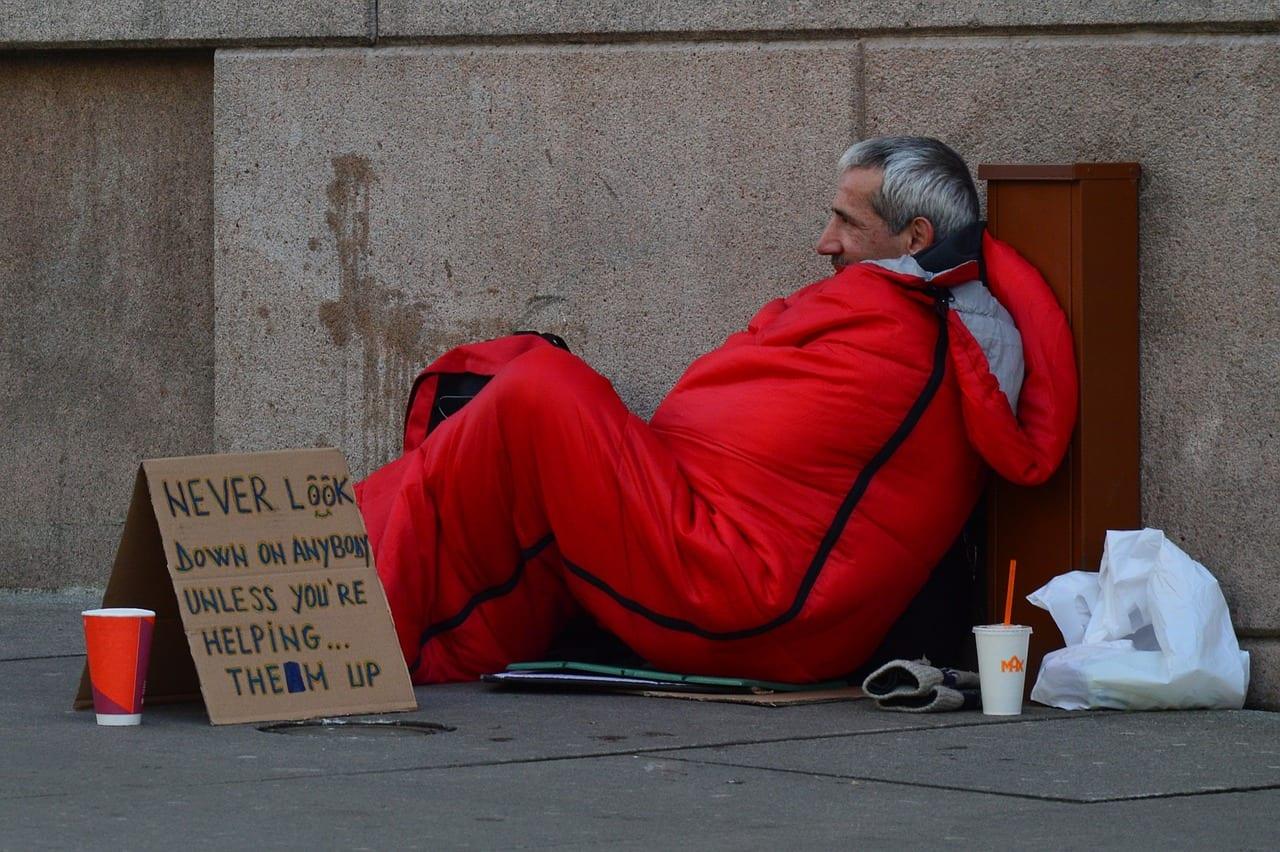LEICESTER, United Kingdom – A new government plan to end homelessness in the United Kingdom by 2027 has been welcomed by the English bishops, who “hope that further steps will be taken to ensure the sense of urgency that this challenge demands.”
The British government pledged over $100 million will be added to programs aimed at ending homelessness, and plans will be developed with the help of charities and experts. The government said it plans on halving homelessness by 2022, before ending it by 2027.
“It is simply unacceptable that people have to sleep on the streets and I am determined to make it a thing of the past,” said James Brokenshire, the UK Communities Secretary, on Aug. 13.
“Whether people are at risk of rough sleeping, already on the streets or in need of settled accommodation, we have a solid plan to help the most vulnerable in our society,” he said.
Bishop Richard Moth of Arundel and Brighton said he was “especially pleased” to see that nearly a third of that additional funding will be dedicated to funding mental health help and treatment for substance misuse, “problems from which many of those living on the streets suffer.”
Moth is the lead bishop for the Catholic Mental Health Project, a project of the Bishops’ Conference of England and Wales that works to support the Catholic community to further develop spiritual and pastoral care for mental health.
“While this plan is significant, we hope that further steps will be taken to ensure the sense of urgency that this challenge demands,” Moth said.
According to the London-based Mental Health Foundation, homelessness and mental health often go hand in hand.
“Having a mental health problem can create the circumstances which can cause a person to become homeless in the first place,” the organization said on its website.
“Yet poor housing or homelessness can also increase the chances of developing a mental health problem or exacerbate an existing condition. In turn, this can make it even harder for that person to recover – to develop good mental health, to secure stable housing, to find and maintain a job, to stay physically healthy and to maintain relationships.”
Stephanie MacGillivray, the Mental Health Project Officer at the bishops’ conference, said the Church has an important role to play in creating the conditions for good mental health.
“In terms of the Catholic Mental Health Project and homelessness, we believe that parish communities are spaces in which everyone should be welcome. This includes the homeless and those with mental health problems,” she told Crux.
“Providing professional mental health care for the homeless is an essential part of helping them along the way to recovery. As well as professional services, supplementary and complementary support can also be found in parish communities which are welcoming spaces, where faith and hope can contribute to building the strength of a person suffering from mental health problems,” MacGillivray said.
The government’s goal of ending homelessness in less than 10 years is certainly ambitious, but Catholic advocacy groups say it is achievable.
“A significant reduction in rough sleeping is possible. It is certainly ambitious but under the Blair/Brown governments homelessness fell dramatically between 2002 and 2009 so it can be done,” said a statement from the Caritas Social Action Network.
(Tony Blair was prime minister from 1997-2007; his successor Gordon Brown served until 2010.)
The organization said it would be a “political judgment” if the target is achieved, since it depends on how one defines “rough sleeping” [the British term for sleeping outdoors] as well as what the implications are for certain communities – such as Gypsies, Roma and Irish Travellers – who do not live in traditional “settled” patterns.
However, the Caritas network said several factors need to be in place before victory against homelessness can be declared:
– Strong mutual networks of support within local communities (which the state cannot create, but public fear/apathy and state activity can diminish.)
– A collaborative approach between families, local communities and public agencies that helps to prevent homelessness for those in housing difficulty.
– Early intervention in those made homeless.
– Intensive supported living for those who have been rough sleeping.
– Ongoing support for those at risk of becoming homeless again, ex-offenders for example.
– Increasing the supply of affordable homes.
– Homelessness prevention for those in housing crisis.
British Prime Minister Theresa May admitted the issue is complex, saying the government must both ensure people have somewhere to live, as well as deal with the underlying problems that cause people to be homeless, “and ultimately help people turn their lives around.”
“Nobody should have to sleep rough, and that’s why we must do all we can to help the most vulnerable in our society get the support they need,” said the prime minister.














